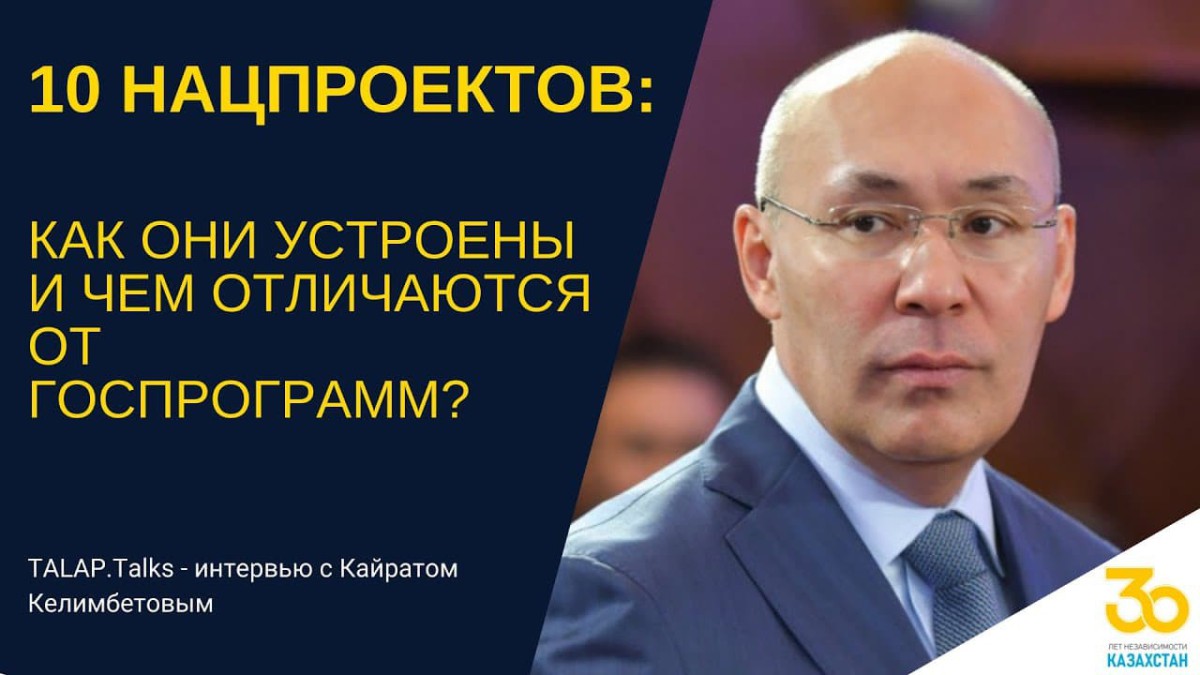The Astana Finance Days international conference was held in Nur-Sultan at the end of last month. The event’s central focus was sustainable development, social responsibility, and growth. While expressing their views and ideas on the evolution of the financial market, the speakers paid special attention to regulatory issues.
Global digitalisation, driven by the pandemic’s consequences, has created new prospects for financial and stock market growth. The world began to aggressively evolve and transform in this direction, developing new financial instruments. They are mostly introduced by developed countries. However, because these instruments will be in high demand in the next decades, emerging markets are eager to adapt them to their countries. And this is clear since they allow for qualitative improvements in the economy: they create new jobs, enhance the business sector, provide an alternative to banking products, improve population welfare, and increase budget replenishment.
The Astana International Financial Centre was formed in Kazakhstan to increase the flow of investments into the country and to attract new financial instruments required for the expansion of the national economy. The AIFC is host to a financial regulator, the Astana Financial Services Authority (AFSA), which provides prudential oversight and maintains the financial stability of the centre’s participants. finreview.kz analysts have investigated how ASFA’s innovative and regulatory solutions assist to the development of business in Kazakhstan, the introduction of new financial instruments, and the attainment of financial market growth.
A robust financial market is built on a strong regulatory framework
To begin, it is critical to understand why financial market regulation is required, especially now, when new products and services are appearing all over the world, and their introduction in the country can be driven by demand.
The banking sector is the most vulnerable to fraud assaults. At the same time, the cost of market participants’ mistakes is extraordinarily high, with potentially irreversible effects for business, the population, and the economy as a whole. As a result, legislation aimed at safeguarding the safety of market players and the financial stability of the state is critical.
Of course, the procedures and characteristics of its application vary. However, in general, they are concerned with the development of legislation governing the operation of a specific segment of the financial market, the development of appropriate rules for the operation of companies, the issuance of permits for them to carry out activities, and control over the legality of their operation.
The AIFC has established a favourable and dependable regulatory framework based on the beneficial experiences of the world’s leading wealth management centres, such as Switzerland, Singapore, Luxembourg, and the UAE. This is the fundamental advantage of the financial centre – its regulatory regime, which is based on common English law.
Recognising the benefits of the AIFC, an increasing number of enterprises are registering their operations in its jurisdiction. Naturally, as new actors arrive, new financial instruments emerge that they wish to deploy on the territory of Kazakhstan and the Central Asian countries. As a result, AFSA is constantly working on the legislative framework required for the adoption of these instruments. To begin, the regulator specifies the fundamental conditions for the proposed instrument. It is also tested in a specially constructed “regulatory sandbox,” where a legislative framework is established by examining its operation and potential hazards. That is, laws are made through practise rather than on the basis of theoretical understanding.
This is precisely how lending and investment crowdfunding platforms got started in Kazakhstan, as well as the legal foundation for bitcoin exchanges and digital asset storage.
The FinTech Lab Regulatory sandbox is a conduit for effective innovations
It is quite difficult to develop new products in the field of financial innovations in the country owing to their uniqueness, because it is unknown whether they would be in demand. It is also cost-effective, as new technical solutions drive the growth of economic activity in the country and assist the real sector of the economy. For example, thanks to a developed FinTech market, the contribution of innovations to GDP in Eastern Europe, the United States, and Japan exceeds 25%. Meanwhile, in Kazakhstan, this figure is less than 3%.
To stimulate the development and implementation of new financial instruments and products in the country, AFSA has launched the FinTech Lab regulatory sandbox. It offers a secure environment in which businesses can test innovative financial services for demand and risk. At the same time, enterprises are not required to comply with all of the AIFC’s regulatory obligations during the test mode. On the contrary, the current financial centre legislation, which may hinder the introduction of an innovative product or service, is softened throughout the experiment.
Dozens of promising ideas have already been implemented in the Regulatory Sandbox. Six crypto exchanges, one crypto broker, and one tokenised securities exchange, for example, are actively testing crypto market services in a sandbox.
In other words, FinTech Lab is a successful model for accelerating the creation of regulation in areas where none now exist. That is, you may either wait until the regulatory framework is built, which is normally a lengthy process, often taking 10 years, or you can start implementing a new approach immediately and get the full benefits of it. Because of the recent accelerated expansion of the FinTech business, the share of innovations could reach 7% of GDP within the next five years.
International agreements as a guarantee of financial market protection from various risks
As experience has shown, it is vital to develop an effective method for exchanging information in order to build a high-quality market infrastructure. In reality, financial regulation is a complicated and large-scale area whose effectiveness grows with the active flow of information. Financial authorities from various nations gain capabilities to combat cross-border fraud and other sorts of financial crimes that could harm global markets and destroy investor trust in them by interacting with one another.
The International Organisation of Securities Commissions (IOSCO) is one of the important bodies involved in the strengthening of global financial markets. It brings together global securities regulators and establishes international standards for them. Over 95 percent of the world’s securities markets are regulated by IOSCO members in over 115 jurisdictions. And its standards ensure that globally uniform approaches to regulatory oversight of securities markets are maintained in order to safeguard investors, maintain fair, efficient, and transparent markets, and manage systemic risks.
Members of IOSCO have signed a Multilateral Memorandum of Understanding (MMoU) on Consultation, Cooperation, and Information Exchange. The agreement specifies what information is to be transferred and in what format, as well as the terms of its dissemination, compulsory provision, and usage. Thus, by combining forces and exchanging information, financial fraud risks are lowered.
AFSA is an associate member of IOSCO and a signatory to the Memorandum of Understanding. Participation in these projects reflects the financial centre’s complete transparency, openness, and readiness to cooperate with worldwide organisations. Cooperation with IOSCO further ensures the AIFC regulatory environment’s conformity with high international standards, which limits the emergence of systemic risks and promotes investor trust in the jurisdiction overall.
Anti-money laundering and combating the financing of terrorism
AFSA is a party to 43 financial supervision agreements with regulators in Europe and Asia. The structure has an extensive global partner network, which allows the AIFC to fight offenses in the financial market. In particular, the financial centre, which acts as a platform for international business, strictly adheres to the standards of the Financial Action Task Force on Money Laundering (FATF). The AIFC Rules on Combating Money Laundering, Terrorist Financing and Sanctions were developed specifically with these standards and recommendations in mind. These guidelines are intended to safeguard the global financial system against dangers such as money laundering, financing terrorism, and the proliferation of weapons of mass destruction. To prevent illicit money flows from passing through the AIFC, for example, procedures for reporting the ultimate beneficial owner have been implemented.
Services of AIFC participants are now available for Kazakhstanis
As the number of AIFC participants grew, the role of developing such a document that would allow them to provide services in Kazakhstan’s jurisdiction increased. And such an agreement was reached last year between AFSA, the National Bank and the Agency for Regulation and Development of the Financial Market. The document is called “Rules for currency regulation and provision of information on ongoing currency transactions in the AIFC”, within which a specific list of financial services available for provision to residents of Kazakhstan was determined. These are the services of investment funds, insurance companies, Islamic banks, brokerage companies, as well as professional services – legal, accounting, auditing.
Banks registered in the financial centre, for example, will now be allowed to lend to legal organisations in Kazakhstan and carry out plans to spend more than 2 billion USD in the national economy. Prior to the rules’ adoption they couldn’t even open correspondent accounts.
The regulators’ agreement will boost the country’s financial system’s stability and reduce risks. Indeed, the extension of the list of financial services has an effect on market strength, lowering the risks of inflation and putting less pressure on the currency.
Crypto exchanges will be able to work together with Kazakh banks
One of the key events at Astana Finance Days 2022 was the official launch of a pilot project for the cooperation of Kazakhstani banks and AIFC-registered crypto exchanges. A special working group approved the applicable guidelines as part of initiatives to develop the crypto industry and blockchain technologies.
The partnership between AIFC crypto exchanges and Kazakh banks aims to provide an acceptable regulatory framework for the ongoing growth of Kazakhstan’s potential as a regional crypto hub. The project will be in pilot mode throughout 2022. It will be comprised of crypto exchanges that have been granted AFSA licences to handle the digital asset platform.
According to Gabit Lesbekov, head of the Department for work with subjects of financial monitoring of the Agency of the Republic of Kazakhstan for financial monitoring, digital technologies – “We receive 95% of information on all questionable transactions from second-tier banks. They are the most involved participants and they have built a high-quality anti-money laundering compliance system.” He also expressed confidence that the pilot project will give a big turn for the further development of the crypto industry and to increase the investment attractiveness of Kazakhstan.
The positive side of the pilot project is the organisation of trading in digital assets in Kazakhstan in a regulated field, which ensures proper protection of the rights of retail and professional investors. In case of successful implementation of the pilot project, changes will be made to the national legislation and acts of the AIFC.


















